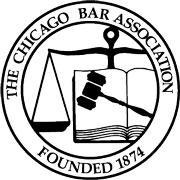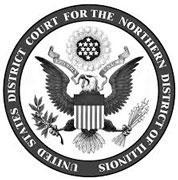Are Alzheimer’s Patients Abused More in Nursing Homes?
 Caring for a parent or an elderly family member with Alzheimer’s can be heartbreaking. When that care must be placed in the hands of a nursing home, families hope their loved one will be treated with dignity and respect. Unfortunately, patients with Alzheimer’s and other forms of dementia are among the most vulnerable nursing home residents, facing a greater risk of abuse or neglect in long-term care facilities.
Caring for a parent or an elderly family member with Alzheimer’s can be heartbreaking. When that care must be placed in the hands of a nursing home, families hope their loved one will be treated with dignity and respect. Unfortunately, patients with Alzheimer’s and other forms of dementia are among the most vulnerable nursing home residents, facing a greater risk of abuse or neglect in long-term care facilities.
No one should have to wonder if a parent is safe in a place meant to provide care. If you believe your loved one with Alzheimer’s is being abused or neglected in a nursing home, our compassionate South Side of Chicago nursing home abuse attorneys can help. We can investigate the situation, explain your legal options, and work to protect your parent’s well-being.
What Is Dementia?
Dementia is a broad term for several conditions that affect thinking, memory, and behavior, with Alzheimer’s disease being the most common type. Alzheimer’s causes a steady decline in mental abilities, which can make it difficult for patients to communicate, remember details, and recognize danger. Those difficulties mean you may not be able to ask your parent if he or she is being harmed.
As dementia progresses, patients often require assistance with everyday tasks, such as dressing, eating, and using the bathroom. They may also become confused, frustrated, or agitated, especially in unfamiliar environments. These challenges make Alzheimer’s patients more dependent on caregivers and more vulnerable to mistreatment.
How Are Alzheimer’s Patients Abused?
Nursing home abuse can take many forms. Some patients are physically harmed, whether by a staff member hurting them or falls due to inadequate supervision or assistance. Yelling, insults, and isolation are types of emotional abuse. Financial exploitation and sexual abuse are all too common.
Because Alzheimer’s disease impairs memory and communication, patients may not be able to explain what happened to them. You need to look for indirect signs that something is wrong.
How Do I Know If My Parent Is Being Abused in the Nursing Home?
If your parent with dementia begins to show signs of fear, sadness, or confusion beyond what is expected with their condition, it could be a warning that abuse or neglect is taking place. Unexplained injuries, such as bruises or cuts, may also raise concerns. Other red flags include sudden weight loss, changes in hygiene, or withdrawal from social interactions. If the nursing home staff seems evasive or avoids answering your questions, this could also indicate abuse.
No one knows your parent better than you. A shift in his or her emotional state or physical condition should never be dismissed. Even if your parent cannot clearly describe abuse, your observations may be enough to start asking questions and seeking help.
What Should I Do If I Suspect Nursing Home Abuse?
Taking immediate action is important. Begin by visiting the facility more often on an irregular schedule and observing the care your parent receives. Pay close attention to how your parent reacts to certain staff members. If possible, raise your concerns by speaking directly with supervisors or administrators. Keep a detailed record of your concerns, including dates, times, and descriptions of any injuries or troubling behavior. You can also take photos of any injuries. If you believe your parent is in danger, call the police or adult protective services.
If neglect or abuse has caused harm to your parent, we can help you pursue a personal injury claim against the facility or other at-fault party.
Call Our Skilled Chicago, IL Nursing Home Abuse Attorney
Alzheimer’s patients deserve safe and respectful care. If you suspect abuse or neglect in a nursing home is harming your parent, reach out to Kadzai Law Group, LLC online or by calling 312-229-0050. Our knowledgeable Hyde Park, IL personal injury lawyers can help you understand your rights and take the appropriate steps to protect your parent. Your initial consultation is free.















